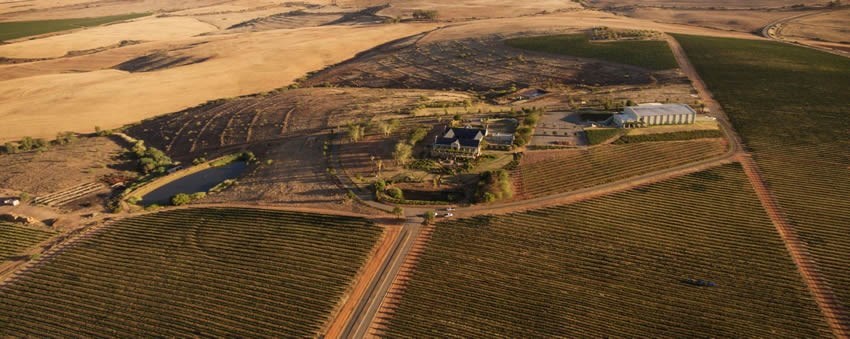According to Johan Gerber, general manager at Org de Rac, an organic wine farm in South Africa’s Swartland wine region, the international demand for organic wine has grown substantially since the outbreak of Covid-19 at the beginning of 2020.
“We are seeing something quite extraordinary in the growth of organic wine sales in the United Kingdom, traditionally South Africa’s largest export market,” says Gerber. “The true indicators of wine market trends in Britain are to be found in the British supermarkets where all the action is. Over the past year Waitrose has realised organic wine sales growth of 56%, Aldi is up 45% and Sainsbury’s 41%. This is arguably the largest surge in organic wine growth in Britain to date and shows no sign of abating.”
In a recent study done by London-based analysts Ecovia Intelligence, retailers across the globe are experiencing hefty sales increases for organic products, and it expects this rise in sales to continue in the coming years. Online retailers are reporting the highest sales growth. Whole Foods Market, the world’s largest natural food and wine retailer, has started limiting the number of its online grocery customers because of unprecedented demand.
In the UK, veg box specialist Abel & Cole reported a 25% increase in sales orders, whilst national rival Riverford is seeing a demand surge.
On the bricks and mortar front, Ecovia Intelligence says organic and health food shops have remained open in many countries, attracting new shoppers, whilst existing customers are spending more. In France, some organic food shops are reporting sales increases of over 40% for food and wine.
Covid-19 is also raising consumer awareness of the relationship between nutrition and health. Consumers are buying more organic and healthy foods as they look to boost their immunity.
Writing in Forbes, Daphne Ewing-Chow said there is likely to be an increase in demand for organic food, vegan, vegetarian and other healthy foods as a result of the pandemic. The performance of organic food companies such as Nourish Organics, which experienced an increase in sales of approximately 30 per cent and the surge in demand for organic vegetable box delivery in the United Kingdom are evidence of this trend.
Gerber says that the increased global demand for organic wines is one sign that Covid-19 has changed the face of wine and wine marketing forever. “Besides the logistical revolutions in terms of on-line orders and deliveries, the intrinsics of wine are changing, of which the move to organic wine is one,” he says. “Only 2% of the South African vineyard is currently organic, but with this ever-changing situation this stands to change, too.”
According to Dr Morné Mostert, head of the Institute for Future Research at the University of Stellenbosch Business School, any crisis leads to an immediate exacerbated reaction. “9-11 is probably the best example to date,” says Mostert. “That crisis caused an immediate reaction in terms of increased safety for the air-travel industry. What Corona has done, is to very suddenly raise huge concerns about personal health among the world's population, resulting in people revisiting their eating and drinking habits. This concern will see a growing demand for products seen as healthy, such as organic food and drink. There is thus going to be a window wherein producers of organic products can capture the interest of this experimental consumer seeking avenues whereby his or her health can be improved.
“The window does not last forever, as humans have proven to drop their initial concerns and go back to their former habits. But what is definite is the current existence of this experimental consumer looking at ways to improve health through, inter alia, organic products. And thereby a unique opportunity has opened up to garner new consumers.”
